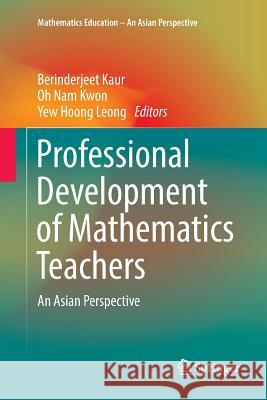Professional Development of Mathematics Teachers: An Asian Perspective » książka
topmenu
Professional Development of Mathematics Teachers: An Asian Perspective
ISBN-13: 9789811096631 / Angielski / Miękka / 2018 / 239 str.
Kategorie:
Kategorie BISAC:
Wydawca:
Springer
Seria wydawnicza:
Język:
Angielski
ISBN-13:
9789811096631
Rok wydania:
2018
Wydanie:
Softcover Repri
Ilość stron:
239
Waga:
0.36 kg
Wymiary:
23.39 x 15.6 x 1.4
Oprawa:
Miękka
Wolumenów:
01











